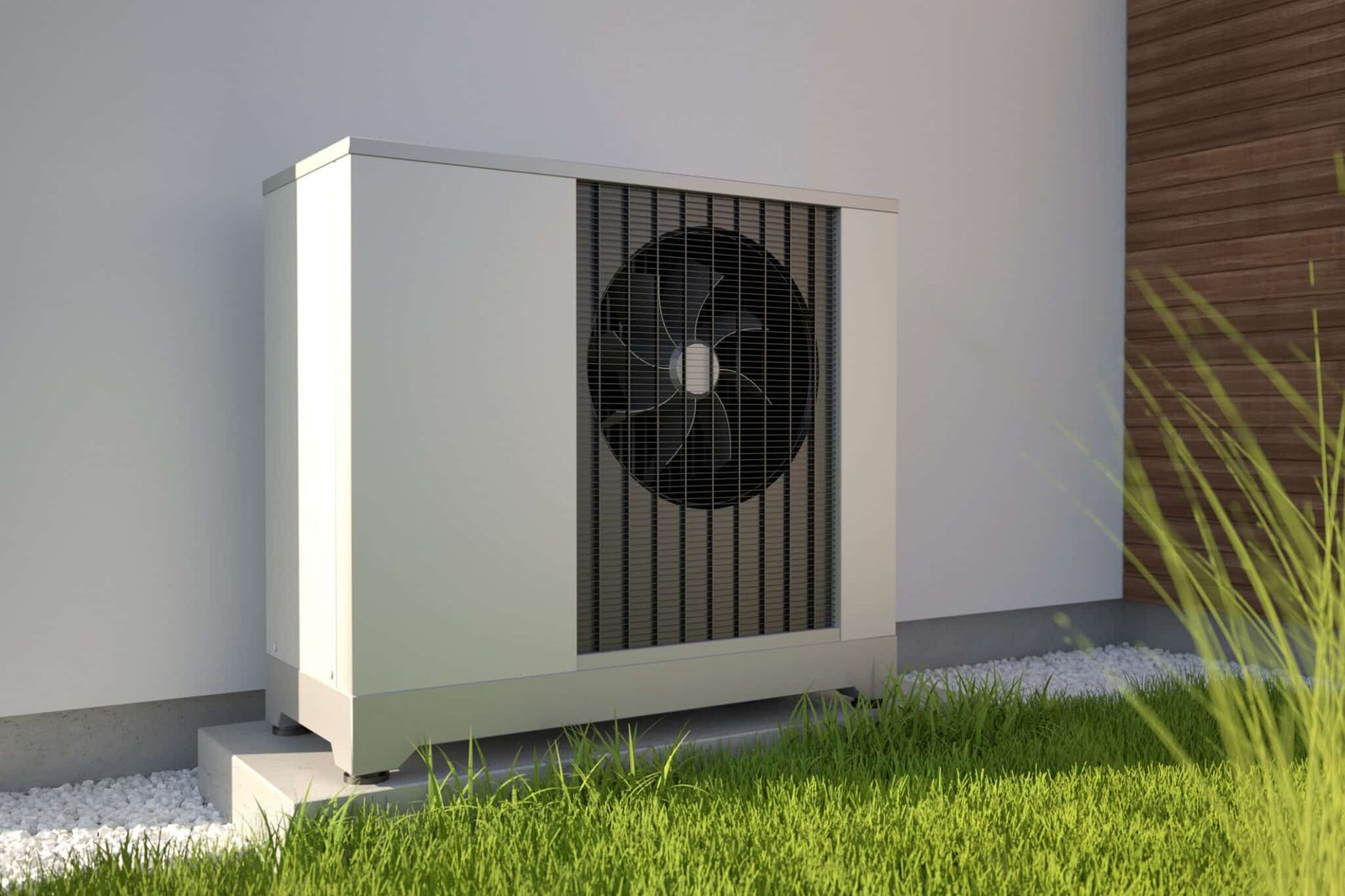A guide to air source heat pump grants and funding.
Escalating energy bills and greater awareness of eco-friendly ways to heat a home are increasing interest in air-to-water heat technology, as well as other systems that reduce our reliance on fossil fuels.
Fortunately, the Government has responded by updating the help it provides to replace and modernise boilers, which includes air source heat pump grants.
This guide to air source heat pump grants will explain eligibility criteria, and what these grants include, as well as the benefits of using this cash to switch to a renewable energy system in your home.
First step in getting an air source heat pump grant
As mentioned, consulting a trained grant advisor at Energy Conservers is an important first step in switching to renewable energy and benefitting from this grant towards the cost of air source heat pumps.
We can check your eligibility and guide you through the options, so you get the best heating system for your property, and only have to find a manageable amount to cover any shortfall between the £7,500 grant and the cost of switching to renewable energy heating.
What is an air source heat pump?

An air-source heat pump (ASHP) is an energy-efficient system that transfers heat from the outside air into your home to provide heating and, in some cases, cooling. It works on the same principle as a refrigerator but in reverse—extracting heat from the air, even in cold temperatures, and moving it indoors.
How It Works:
- Heat Absorption: The pump extracts heat from the outside air using a refrigerant that evaporates at low temperatures.
- Compression: The refrigerant is then compressed, which increases its temperature.
- Heat Release: The heated refrigerant is passed through a heat exchanger to release the heat into your home’s heating system, such as radiators, underfloor heating, or hot water.
- Circulation: The refrigerant is then cooled and cycled back outside to repeat the process.
Benefits:
- Energy Efficiency: ASHPs can provide up to three times more heat energy than the electrical energy they consume, making them highly efficient.
- Cost Savings: Although they require electricity to operate, the high efficiency means they can lower overall heating costs.
- Reduced Carbon Emissions: By using renewable heat from the air, ASHPs contribute to lower carbon emissions compared to traditional heating systems like gas or oil boilers.
- Year-Round Use: Some models can reverse the process to cool your home in the summer, making them versatile for different climates.
The ECO4 scheme and air source heat pumps
The ECO4 scheme offers financial support for the installation of air-source heat pumps (ASHPs) as part of its initiative to improve energy efficiency in low-income and vulnerable households. Under this scheme, eligible households can receive funding to cover the cost of installing an ASHP, which can significantly reduce heating bills and lower carbon emissions.
Key Aspects of ECO4 Support for Air-Source Heat Pumps:
- Cost Coverage: The scheme may cover the full or partial cost of purchasing and installing an ASHP, depending on your eligibility. This includes the unit itself, installation costs, and any necessary upgrades to your heating system.
- Eligibility: Households must meet certain criteria, such as being in fuel poverty, having a low income (typically below £31,000 annually), or receiving specific government benefits like Universal Credit or Housing Benefit. Additionally, homes must have a low energy efficiency rating (EPC rating of D, E, F, or G)
- Energy Savings: ASHPs installed through the ECO4 scheme can provide significant energy savings by converting energy from the outside air into heat, which is more efficient than traditional heating methods. This can result in lower energy bills and a reduced carbon footprint.
- Environmental Impact: By using renewable energy, ASHPs help reduce reliance on fossil fuels, contributing to lower greenhouse gas emissions and helping the UK meet its climate goals.
The ECO4 scheme is an excellent opportunity for eligible households to upgrade to a more sustainable and cost-effective heating system.






FAQs
No, the grant for an air-source heat pump under the ECO4 scheme does not have to be repaid. The scheme is designed to help low-income and vulnerable households improve their energy efficiency at no cost or reduced cost, without requiring repayment.
With an air-source heat pump, you could save around £500 to £1,000 per year if switching from electric heating, and about £200 to £500 per year if switching from a gas boiler. Savings depend on factors like your current heating system and home insulation.
Installing an air-source heat pump typically takes 2 to 3 days. The exact duration depends on various factors, such as the complexity of the installation, the size of your property, and whether any additional work is needed (like upgrading the electrical system or modifying radiators).
In most cases, planning permission is not required to install an air-source heat pump (ASHP) in the UK, as it typically falls under “permitted development rights.” However, there are some conditions and exceptions:
Permitted Development Conditions:
-
- The outdoor unit must not be larger than 0.6 cubic meters.
- It must be installed at least 1 meter away from the property boundary.
- The unit cannot be installed on a pitched roof or within 1 meter of the edge of a flat roof.
- There should be no more than one ASHP installed on the property.
- If your home is in a designated area (such as a conservation area or a listed building), different rules may apply, and planning permission might be required.
Yes, heat pumps need regular maintenance, including cleaning or replacing filters, checking refrigerant levels, and inspecting coils and ductwork. Regular professional check-ups are recommended to keep them running efficiently.



